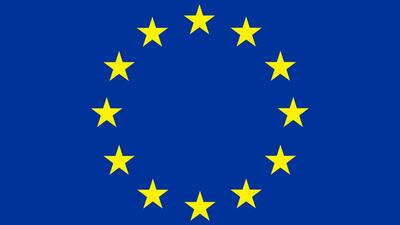-
Our work
-
Fields of work
- Arms control
- Border management
- Combating trafficking in human beings
- Conflict prevention and resolution
- Countering terrorism
- Cyber/ICT Security
- Democratization
- Economic activities
- Education
- Elections
- Environmental activities
- Gender equality
- Good governance
- Human rights
- Media freedom and development
- Migration
- National minority issues
- Policing
- Reform and co-operation in the security sector
- Roma and Sinti
- Rule of law
- Tolerance and non-discrimination
- Youth
- Field operations
- Projects
-
Meetings and conferences
- Summit meetings
- Review Conferences
- Ministerial Council meetings
- Plenary meetings of the Permanent Council
- Plenary Meetings of the Forum for Security Co-operation
- Security Review Conferences
- Annual Implementation Assessment Meetings
- Economic and Environmental Forum
- Economic and Environmental Dimension Implementation Meetings
- Human rights meetings
- Media conferences
- Cyber/ICT security conferences
- Conference of the Alliance against Trafficking in Persons
- Gender equality conferences
- Annual OSCE Mediterranean conferences
- Annual OSCE Asian conferences
- Partnerships
-
Fields of work
-
Countries
- All
-
Participating States
- Albania
- Andorra
- Armenia
- Austria
- Azerbaijan
- Belgium
- Belarus
- Bosnia and Herzegovina
- Bulgaria
- Canada
- Croatia
- Cyprus
- Czechia
- Denmark
- Estonia
- Finland
- France
- Georgia
- Germany
- Greece
- Holy See
- Hungary
- Iceland
- Ireland
- Italy
- Kazakhstan
- Kyrgyzstan
- Latvia
- Liechtenstein
- Lithuania
- Luxembourg
- Malta
- Moldova
- Monaco
- Mongolia
- Montenegro
- The Netherlands
- North Macedonia
- Norway
- Poland
- Portugal
- Romania
- Russian Federation
- San Marino
- Serbia
- Slovakia
- Slovenia
- Spain
- Sweden
- Switzerland – OSCE Chairpersonship 2026
- Tajikistan
- Türkiye
- Turkmenistan
- Ukraine
- United Kingdom
- United States of America
- Uzbekistan
- Asian Partners for Co-operation
- Mediterranean Partners for Co-operation
-
Structures and institutions
- Chairpersonship
-
Secretariat
- Secretary General
- Office of the Secretary General
- Conflict Prevention Centre
- Transnational Threats Department
- Office of the Special Representative and Co-ordinator for Combating Trafficking in Human Beings
- Office of the Co-ordinator of OSCE Economic and Environmental Activities
- Gender Issues Programme
- Opportunities for Youth
- Department of Human Resources
- Department of Management and Finance
- Office of Internal Oversight
- Documentation Centre in Prague
- Institutions
-
Field operations
- Presence in Albania
- Centre in Ashgabat
- Programme Office in Astana
- Programme Office in Bishkek
- Mission to Bosnia and Herzegovina
- Programme Office in Dushanbe
- Mission in Kosovo
- Mission to Moldova
- Mission to Montenegro
- Mission to Serbia
- Mission to Skopje
- Project Co-ordinator in Uzbekistan
- Closed field activities
- Parliamentary Assembly
- Court of Conciliation and Arbitration
- Organizational structure
- About us
Overview
The partnership between the two international bodies goes back to the beginning of the Helsinki process in the early 1970s, when the then-European Communities (predecessors of today’s European Union) played an active role in negotiating the Helsinki Final Act. The Act was signed by then-Prime Minister of Italy Aldo Moro, in his capacity as President of the Council of the European Communities. Presidents of the Commission of the European Union signed the 1990 Charter of Paris for a New Europe and the 1999 Charter for European Security, alongside the EU Presidency, and delivered a supportive interpretative statement to the OSCE’s 2010 Astana Commemorative Declaration Towards a Security Community. In 2006, the EU’s participation in the OSCE at the meetings of the Organization’s decision-making bodies was formalized in the OSCE’s Rules of Procedure, which granted it a seat next to (and the right to deliver statements right after) the participating State holding the rotating EU Presidency.
All 27 EU Member States are participating States of the OSCE, together accounting for 47 per cent of the Organization’s total.
EU-OSCE co-operation
Over the years, the scope of co-operation between the OSCE and the EU broadened and deepened. Relations have increased at all levels in particular since a key Exchange of Letters took place in 2018 between the Secretary Generals of the OSCE, the European External Action Service and the EU Commission, which called for an annual meeting focused on ways to maximize efficient and effective co-operation between the three, as well as regular discussions and exchanges of information at headquarters and field operations level. Several focus areas for these discussions were outlined in the Letter, including conflict prevention and mediation, human rights and fundamental freedoms, the protection of national minorities, gender equality, the promotion of the rule of law and of civilian security, the strengthening of the participating States’ resilience by responding to transnational threats, politico-military aspects of security, and confidence and security-building measures in the economic and environmental sphere.
The EU is represented at the OSCE by its Delegation of the European Union to the International Organisations in Vienna, whose Deputy Head is the Ambassador/Permanent Representative to the OSCE.
The OSCE maintains strong co-operative relations primarily with the EU Delegation in Vienna and the European External Action Service, but also with key line services of the European Commission, including the Directorate-General for Enlargement and the Eastern Neighbourhood (DG ENEST), the Service for Foreign Policy Instruments (FPI), the Directorate-General for Migration and Home Affairs (DG HOME) and the Directorate-General for International Partnerships (DG INTPA).
